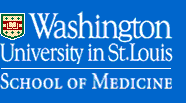


 |
 |
 |
|
|
Shades of Gray Examining uncertainty: ethics and human values |
|||||||
|
Faculty, students, community leaders, even national experts gather for thoughtful debates of such questions as embryonic stem cell research, medical malpractice and tort reform or nationalized health care.
|
THE PATIENT IS HOSPITALIZED, seriously ill, with no hope of a cure. Although he had never wished to linger, he is tethered to life-sustaining equipment through a tangle of tubes and lines. Day after day, he is pricked and prodded by well-meaning medical personnel, simply doing their jobs. How can such a patient achieve a dignified death? “ The answer is palliative care, in which an interdisciplinary team of physicians, nurses, chaplains and social workers come in and say: ‘What did your dad really want?’ and ‘What can we do?’” says Ira J. Kodner, MD, director of the Center for the Study of Ethics and Human Values, which has helped launch this new program. Gathering people from around the university to tackle thorny ethical issues is the mission of the center, founded in 2003. Faculty, students, community leaders, even national experts gather for thoughtful debates of such questions as embryonic stem cell research, medical malpractice and tort reform or nationalized health care. And center-sponsored programs extend to even broader value-based questions, as in a conference this April called “Democracy and Global Justice” or a lecture in February by former Senator Robert Kerrey on “Uncovering Truth in a Democratic Society.”
Ira J. Kodner, MD, director (left), and Stuart D. Yoak, executive officer of the Center for the Study of Ethics and Human Values The result is a program that is already assuming a leadership role nationally for its unusual, interdisciplinary focus in which social workers talk to medical practitioners, lawyers to philosophers, surgeons to economists. Some of its projects are also unique. Currently, Barnes-Jewish Hospital is the largest teaching hospital in the United States to have a palliative care program. This summer, the Internal Revenue Service Office of Professional Responsibility will circulate to IRS field offices across the country a Tax Ethics DVD for lawyers, certified public accountants, and other tax professionals developed by the center. “ This university-wide program is of vital importance, because ethics and human values affect all students and faculty and all programs of education and scholarship,” says Chancellor Mark S. Wrighton. “I am grateful to Dr. Kodner for taking an impressive leadership role in building a program of high quality having great value to our university community.” The center also collaborates with many groups and institutions in sponsoring programs, such as the Interfaith Partnership of St. Louis and the University of Missouri-Columbia for a program on religious views of stem cell research, and the Jewish Community Relations Council for a discussion of the Darfur crisis. Recently, the center teamed up with Edison Theatre on a panel discussion in conjunction with performances of “Hiroshima Maiden,” based on the story of Japanese women, disfigured by the atomic blast, who were brought to the U.S. for reconstructive surgery. Sometimes center-sponsored discussions focus more narrowly on the needs of a single department. In surgery, for example, Mary E. Klingensmith, MD, coordinates monthly sessions in which residents can eat pizza and discuss ethical issues that they have faced, including religious prohibitions on blood transfusions. “ The personnel, expertise and programs of the Center for the Study of Ethics and Human Values are a very valuable resource to the entire Washington University community,” says Larry J. Shapiro, executive vice chancellor for medical affairs and dean of the medical school. “The School of Medicine has long been noted for its excellence in fundamental investigation, clinical care and educational programs. Through the work of the center, we will become acknowledged as leaders in the development of important ethical principles that will guide decision making in the future.” But the center does not limit itself to fostering discussion: It also sponsors ethical research and education through faculty and student grants of up to $5,000 each. Students, in fact, play a key role in planning the center’s programs and setting its agenda. On a recent Saturday, Kodner hosted a picnic at his home to discuss with interested students which areas should be a priority this year. Soon, sheets of newsprint were filled with project suggestions, including health care for the underinsured, “isms” such as sexism or racism, and most of all, basic ethics communication. “
That was surprising to us: There is a significant interest in simply
the idea of what ethics is all about,” says Stuart D. Yoak, the
center’s
executive officer. “One thing the center focuses on is that
different professions have different terms and concepts about values,
so the students wanted
to understand
the lawyer’s concept, the business person’s concept
and the medical view in order to move toward a Ideas for new ventures may also come from the center’s executive committee, headed by University College dean Robert E. Wiltenburg and composed of senior faculty and administrators, or its program committee, made up of other interested university faculty. Last year, they set “truth” as the theme for their activities and this year are shifting to a related topic — “responsibility” — which ties in to a range of issues, from environmental policy to academic integrity. Of course, mounting programs on such topics takes money. Initial funding for the center has come from 10 community backers who have pledged $50,000 each, and a $100,000 leadership grant from the Arthur and Helen Baer Charitable Foundation. Operational support has come from Arts & Sciences, the School of Medicine, the Barnes-Jewish Hospital Foundation and the Medical Staff Association. These many facets of the center mean full days for Kodner, also the Solon and Bettie Gershman Professor of Colon and Rectal Surgery, who first became interested in ethical issues years ago while teaching an elective in the medical humanities program, “Dealing with Sick Folks and their Families.” “ We got into issues of truth-telling and delivering bad news and answering religious questions,” says Kodner. “For example, when patients say to us — ‘Why is God doing this to us?’ — how do you respond?” His own patients, half of whom suffer from colon or rectal cancer, also have taught him about the need for compassion. “We have come to think that the end of life means a defeat for us as physicians and nurses, but I know it isn’t,” he adds. “Sometimes the most gratifying thing we can do is guide a patient to an honorable death.” That’s where palliative care comes in, one of the most successful center efforts to date. Already, the hospital has hired a palliative care physician and is reviewing applications for a dedicated nurse practitioner. Business planning for the program has been helped by a consulting team of MBA students and faculty at the John M. Olin School of Business, while the cross-campus educational component will be handled by students from social work, medicine and law. Along with donors Jack and Ellen Deutsch, the other major sponsor of this project is university friend Dorothy Moog. “
All we are doing is bringing together components of a great university,” says
Kodner. “And it gives all of us a huge sense of pride
that the center is helping to accomplish something as important
as this.”
|
||||||